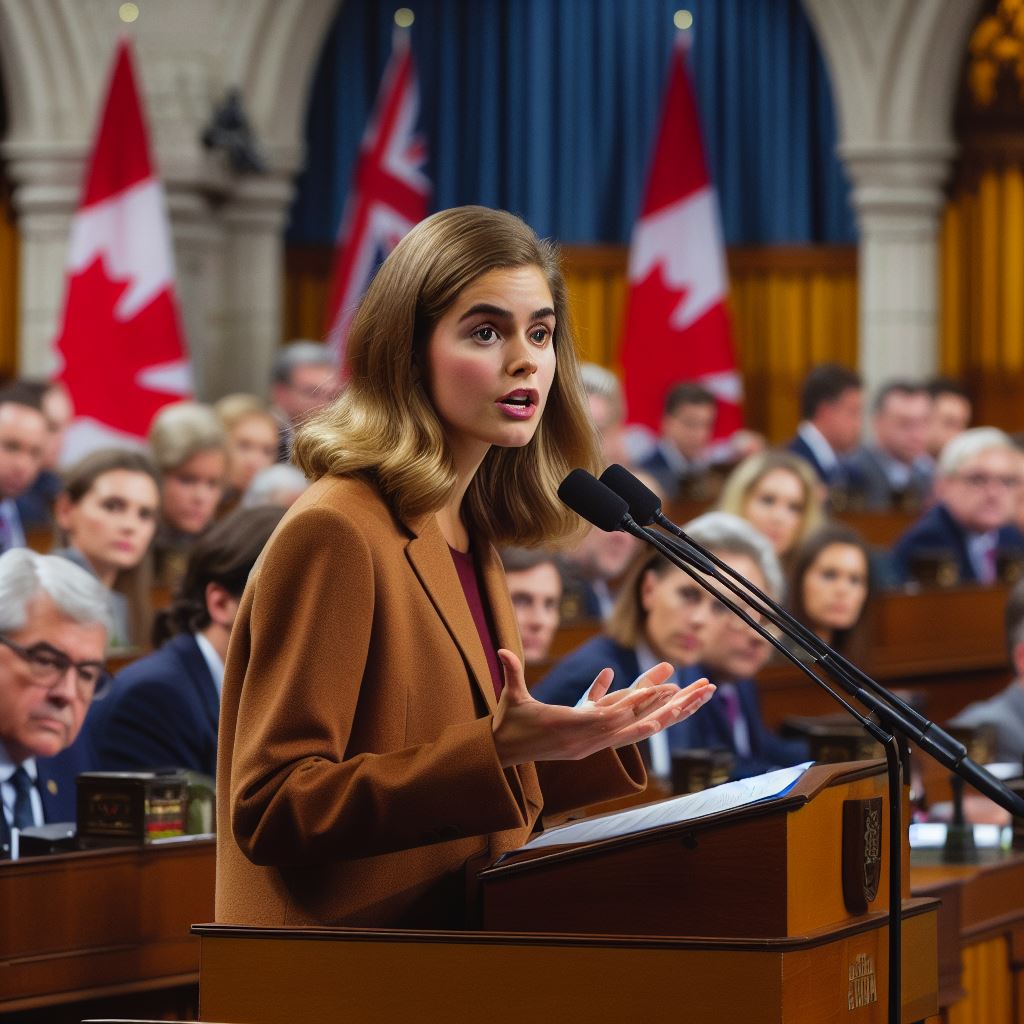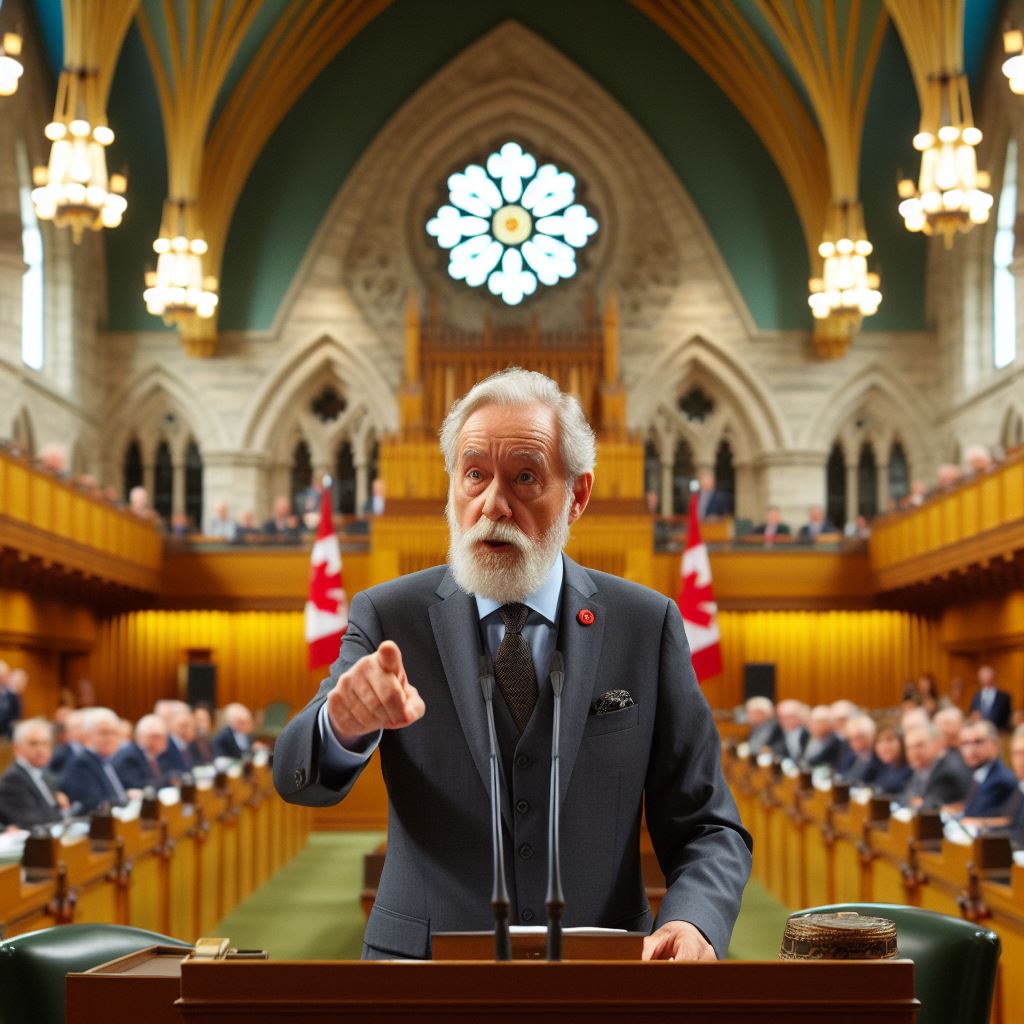Introduction
Canadian political scandals have a long and storied history, stretching back to the early days of confederation.
Studying these scandals is important because it helps us understand the impact they have on the political landscape.
Embarking on a nuanced exploration, we navigate through the labyrinth of Canadian political scandals, each chapter marked by its own unique blend of secrecy, revelation, and public scrutiny.
From the infamous sponsorships affair to the more recent controversies, this historical odyssey sheds light on the multifaceted dimensions of power, accountability, and the ever-evolving dynamics of political life.
As we traverse this landscape, we not only uncover the facts but also examine the profound implications these scandals have had on public trust, governance structures, and the very essence of Canadian democracy.
Join us as we delve into the intricacies of these events, providing a comprehensive understanding of the intricate tapestry that forms the backdrop of Canadian political history.
Early Political Scandals in Canada
Pacific Scandal (1873)
Background and main players involved
The Pacific Scandal occurred during the tenure of Prime Minister Sir John A. Macdonald.
Main players involved were Sir Hugh Allan, a Montreal-based businessman, and political figures within Macdonald’s government.
Scandal details and impact on Canadian government
Sir Hugh Allan, seeking government contracts for his railway company, made large contributions to Macdonald’s election campaign.
This raised questions about political patronage and potential corruption within the government.
The scandal was exposed when a telegram, implicating Macdonald and his government, was leaked to the press.
The revelation caused public outrage and damaged the reputation of Macdonald’s government.
In response, Macdonald resigned as Prime Minister in 1873, though he later returned to power.
The Pacific Scandal led to the creation of the Royal Commission, tasked with investigating political corruption.
This scandal further highlighted the need for transparency and accountability in Canadian politics.
Mount Cashel Orphanage Scandal (1989)
Background and main players involved
The Mount Cashel Orphanage Scandal unfolded in St. John’s, Newfoundland.
It involved allegations of physical and sexual abuse committed by members of the Christian Brothers, who ran the orphanage.
Scandal details and impact on Canadian government
The scandal came to light when former residents of Mount Cashel Orphanage bravely spoke out about the abuse they had endured.
The revelations shocked the nation and exposed the widespread abuse of power within the Catholic Church.
The scandal highlighted the failure of the church and government authorities to protect vulnerable children.
It prompted public demand for justice and accountability, leading to criminal investigations and convictions of the abusers.
The Mount Cashel Orphanage Scandal forced the Catholic Church to face the dark chapter in its history and prompted reforms.
The scandal also led to significant changes in how child abuse allegations are handled by authorities in Canada.
Sponsorship Scandal (1999-2006)
Background and main players involved
The Sponsorship Scandal emerged during the tenure of Prime Minister Jean Chrétien.
Key players involved were officials from the Liberal Party of Canada and government agencies.
Unlock Your Career Potential
Visualize a clear path to success with our tailored Career Consulting service. Personalized insights in just 1-3 days.
Get StartedScandal details and impact on Canadian government
The scandal involved the misappropriation of government funds allocated for sponsorship programs in Quebec.
Millions of dollars were redirected to advertising companies with connections to the Liberal Party, bypassing proper procedures.
The scandal exposed a culture of corruption and unethical practices within the Liberal government.
It damaged the public’s trust in the government and led to calls for accountability and transparency in politics.
The Sponsorship Scandal resulted in a public inquiry, known as the Gomery Commission, that aimed to uncover the truth.
The inquiry led to testimonies and convictions, bringing some justice and revealing the extent of the wrongdoings.
The scandal had a profound impact on the Liberal Party’s reputation, contributing to their subsequent electoral defeat.
These early political scandals in Canada demonstrate the challenges faced by the government in maintaining integrity and public trust.
They serve as critical reminders of the importance of accountability, transparency, and ethical conduct in politics.
Through revelations and subsequent actions, these scandals have paved the way for reforms and have significantly shaped the Canadian political landscape.
Read: Political Fundraising in Canada: An Insight
The King-Byng Affair (1925)
Context and key individuals
- The King-Byng Affair occurred during the 1925 Canadian federal election.
- The key individuals involved were Governor General Lord Byng and Prime Minister William Lyon Mackenzie King.
Details of the scandal and its consequences
- After the election, no single party won a majority, leading to a hung parliament.
- King’s Liberal Party secured the most seats, but lacked a majority.
- He sought to form a minority government with the support of the Progressive Party.
- However, Byng, as the representative of the British monarchy, questioned King’s legitimacy.
- Byng refused King’s request to dissolve parliament and call for another election.
- King resigned, and Arthur Meighen, leader of the Conservative Party, was asked to form a government.
- Meighen’s government fell after just three days, as he was unable to secure enough support.
- King then formed a coalition with the Progressives and returned to power.
Political implications and constitutional crisis
The King-Byng Affair had significant political implications and sparked a constitutional crisis in Canada.
- It raised questions about the powers and limitations of the Governor General.
- Byng’s decision to refuse King’s request was criticized by Liberal supporters.
- Many argued that the Governor General overstepped his authority and interfered with the democratic process.
- The affair highlighted the need for clearer guidelines on the role and responsibilities of the Governor General.
- It led to discussions about the possibility of constitutional reforms in Canada.
- The King-Byng Affair also exposed divisions within Canadian society and political parties.
- It deepened the rift between English-Canadian nationalists and French-Canadian nationalists.
- Some viewed Byng’s actions as favoring English-Canadian interests over those of French-Canadians.
- The affair further polarized the political landscape, impacting subsequent elections.
- Overall, the King-Byng Affair served as a catalyst for debate and reflection on Canada’s political system.
In fact, the King-Byng Affair of 1925 marked a significant event in Canadian history.
It revealed tensions surrounding the powers of the Governor General and tested the limits of democracy.
The controversy sparked by this scandal ultimately contributed to discussions on constitutional reforms and the role of the monarchy in Canadian politics.
It serves as a reminder of the importance of clear guidelines and democratic principles in shaping the nation’s political landscape.
Read: The Evolution of Canadian Political Roles
The Sponsorship Scandal (1996-2004)
Background and Key Figures Involved
The Sponsorship Scandal, also known as AdScam, was a political scandal that occurred in Canada from 1996 to 2004.
It involved the misappropriation of government funds and illegal activities within the federal government.
Various key figures were involved, including Jean Chrétien, the Prime Minister at the time, and several members of the Liberal Party.
Jean Chrétien, a prominent figure in Canadian politics, served as the Prime Minister from 1993 to 2003.
Chrétien’s government came up with the Sponsorship Program in 1996, with the aim of promoting Canadian unity, particularly in Quebec.
The program allocated funds to various organizations and events, including advertising campaigns, to showcase Canada’s unity.
Uncovering the Scandal and Public Outrage
In 2002, suspicions arose about the Sponsorship Program when it was revealed that a significant amount of money was being spent on advertising agencies.
Further investigation exposed the fact that many of these agencies had little to no real work and were instead funneling the money back to the Liberal Party.
The scandal became public knowledge in 2004 when a government auditor’s report revealed the extent of the misappropriation of funds.
This disclosure sparked public outrage and led to widespread condemnation of the Liberal Party and the government.
Canadians were outraged not only by the mismanagement of funds but also by the corruption within the government.
It tarnished the image of the Liberal Party, which had held power for several years, and undermined public trust in the political system.
Investigation and Legal Consequences
In response to public pressure, an investigation was launched into the Sponsorship Scandal.
The Gomery Inquiry, led by Justice John Gomery, aimed to uncover the truth behind the scandal and hold those responsible accountable.
The inquiry revealed a web of corruption, kickbacks, and political favoritism within the government.
Testimonies from witnesses shed light on the extent of the fraud and implicated high-ranking officials within the Liberal Party.
As a result, several individuals faced legal consequences for their involvement in the scandal.
In 2004, Chrétien’s successor, Paul Martin, ordered criminal investigations into the scandal, which led to charges against key players.
Admitting responsibility, the Liberal Party implemented reforms and apologized for their actions.
They faced electoral repercussions, losing power in 2006 after over a decade in government.
The Sponsorship Scandal had a lasting impact on Canadian politics.
It highlighted the need for transparency, accountability, and ethics in the political system.
The scandal also led to significant changes in how political campaigns and government programs are funded and monitored.
In essence, the Sponsorship Scandal was a dark chapter in Canadian political history.
It involved the misappropriation of funds, corruption, and the erosion of public trust.
The scandal not only affected the Liberal Party but also had broader implications for the Canadian political landscape.
It serves as a reminder of the importance of ethical conduct and transparency in governance.
Read: Canadian Politicians and International Diplomacy

Explore Further: Volunteering: A Path to Public Service
Robocall Scandal (2011)
Overview of the scandal and its impact
- The Robocall Scandal refers to the fraudulent calls made during the 2011 Canadian federal election.
- It involved automated phone calls misdirecting voters to wrong polling stations.
- This scandal had a significant impact on the election results and public trust in the electoral process.
- Many Canadians felt their democratic rights were violated, and it raised concerns about the fairness of the election.
Election irregularities and voter suppression allegations
- The scandal exposed widespread election irregularities, with thousands of false or misleading calls reported across the country.
- There were allegations of voter suppression, as the calls targeted non-Conservative voters in key swing ridings.
- Voters received misleading information about changes in polling locations, leading to confusion and potential voter disenfranchisement.
- This unethical tactic aimed to discourage individuals from voting, potentially affecting election outcomes.
Legal actions and aftermath
- Following the scandal, Elections Canada launched investigations into the fraudulent calls.
- The Conservative Party of Canada denied involvement but acknowledged that a few rogue individuals may have been responsible.
- Legal actions were taken against some party officials and campaign workers.
- In 2014, Michael Sona, a Conservative campaign staffer, was convicted of election fraud related to the Robocall Scandal.
- The scandal led to increased scrutiny of election processes and improved preventative measures against voter suppression.
- Elections Canada introduced new guidelines and regulations to ensure the integrity of future elections.
In general, the Robocall Scandal of 2011 shook the Canadian political landscape by exposing widespread election irregularities and voter suppression tactics.
The fraudulent automated phone calls misdirected voters and raised concerns about the fairness of the election process.
The impact of this scandal was significant, with public trust in the electoral system being compromised.
However, legal actions were taken against those responsible, leading to improved regulations and preventative measures to protect the integrity of future elections.
Despite the aftermath, the Robocall Scandal serves as a reminder of the importance of transparency, accountability, and safeguarding the democratic rights of Canadian citizens.
Read: Navigating Political Parties in Canada
Recent Political Scandals in Canada
In recent years, Canada has witnessed several political scandals that have shaken the nation and eroded public trust in its leaders.
Two prominent examples are the Senate Expense Scandal in 2012 and Trudeau’s Vacation Controversy in 2019.
Senate Expense Scandal (2012)
- Background and key individuals implicated: The Senate Expense Scandal involved four senators, Mike Duffy, Patrick Brazeau, Pamela Wallin, and Mac Harb, who were accused of claiming illegitimate housing and travel expenses.
- Investigation and consequences: An extensive investigation was launched, and it was revealed that these senators had inappropriately used taxpayers’ money. The scandal led to criminal charges, suspension from the Senate, and damaged reputations.
Trudeau’s Vacation Controversy (2019)
- Description of the scandal and public reaction: Prime Minister Justin Trudeau and his family took a vacation to a private island owned by the Aga Khan, a wealthy philanthropist, which raised concerns about potential conflicts of interest and ethical breaches. The public was outraged by the perceived lack of transparency.
- Ethics Commissioner’s findings and consequences: The Ethics Commissioner determined that Trudeau had violated the Conflict of Interest Act by accepting the vacation. This controversy cast a shadow on Trudeau’s leadership and tarnished his image among Canadians.
These recent political scandals serve as reminders of the importance of accountability, transparency, and maintaining ethical standards in the Canadian political landscape.
The consequences faced by the individuals implicated highlight the need for stricter regulations and oversight to prevent such scandals from happening in the future.
It is crucial for politicians and public officials to understand the impact of their actions on the public’s trust.
The Senate Expense Scandal exposed systemic issues in the Senate, prompting a call for reforms to ensure responsible use of taxpayer funds.
Similarly, Trudeau’s Vacation Controversy showcased the potential pitfalls of blurring personal and official relationships, which can compromise the integrity of the office and undermine public confidence.
Both scandals sparked public discourse and once again emphasized the significance of maintaining high ethical standards in the Canadian political landscape.
The incidents have fueled demands for greater transparency, accountability, and improved governance practices.
In short, recent political scandals in Canada have shed light on the need for continuous vigilance in upholding ethical standards and ensuring transparency within the government.
The Senate Expense Scandal and Trudeau’s Vacation Controversy have highlighted the consequences that individuals face when they violate the trust placed upon them.
These incidents should serve as lessons for politicians and public officials, urging them to prioritize integrity and the public interest in their decision-making processes.
Lessons Learned and Reforms Implemented
Overview of reforms following major scandals
- Introduction of the Federal Accountability Act in response to the Sponsorship Scandal.
- Establishment of the Office of the Conflict of Interest and Ethics Commissioner to prevent conflicts of interest.
- Strengthening of whistleblower protection to encourage individuals to come forward with information on wrongdoing.
- Implementation of new rules for political party finances to increase transparency and prevent corruption.
- Creation of the Lobbying Act to regulate the activities of lobbyists and enhance accountability.
Impact on Canadian political landscape
- Restored public trust and confidence in the political system through increased accountability.
- Shifted the focus of political campaigns from scandal-driven to policy-driven discussions.
- Encouraged a more cautious approach towards political decision-making and actions.
- Led to the emergence of new political leaders committed to ethical practices and transparency.
- Influenced Canadian citizens’ expectations of integrity and honesty from their elected officials.
Ongoing challenges and the importance of transparency
- Persistent risk of new scandals due to human greed and the complexity of politics.
- Continuous vigilance is crucial to ensure the effective implementation and enforcement of reforms.
- Importance of public engagement and awareness to hold politicians accountable for their actions.
- Continued role of media in exposing scandals and creating public pressure for necessary reforms.
- A constant need to adapt and update regulations to address emerging forms of misconduct.
In a nutshell, Canadian political scandals have not only left a mark on the country’s history but have also triggered significant changes in the political landscape.
Reforms implemented following major scandals have aimed to increase transparency, accountability, and ethical conduct in political affairs.
These changes have helped restore public trust and shift the focus towards policy-driven discussions.
However, ongoing challenges remain, and maintaining transparency and holding politicians accountable continue to be crucial.
With an engaged public and a vigilant approach, Canada can strive towards a political system that upholds the highest standards of integrity and honesty.
Conclusion
Throughout its history, Canada has faced numerous scandals that have left a lasting impact on its political landscape.
These scandals have varied in nature and severity, ranging from corruption to ethical breaches.
Some noteworthy examples include the sponsorship scandal, the Shawinigate controversy, and the scandal surrounding Prime Minister Justin Trudeau’s trip to the Aga Khan’s private island.
Understanding these scandals is crucial in preventing future occurrences.
By studying the past, we can identify patterns, weaknesses, and loopholes that have allowed such scandals to unfold.
Moreover, history serves as a reminder that no system is immune to corruption and unethical behavior.
It highlights the importance of holding political leaders accountable and maintaining a robust system of checks and balances.
By learning from past mistakes, Canadians can actively work towards creating a more transparent, ethical, and accountable political landscape.
Ultimately, the study of Canadian political scandals provides valuable insights into the consequences of power abuse and the importance of maintaining integrity in public office.
As citizens, we must remain vigilant and demand accountable leadership, recognizing that the lessons of history can guide us towards a brighter and more trustworthy political future.




